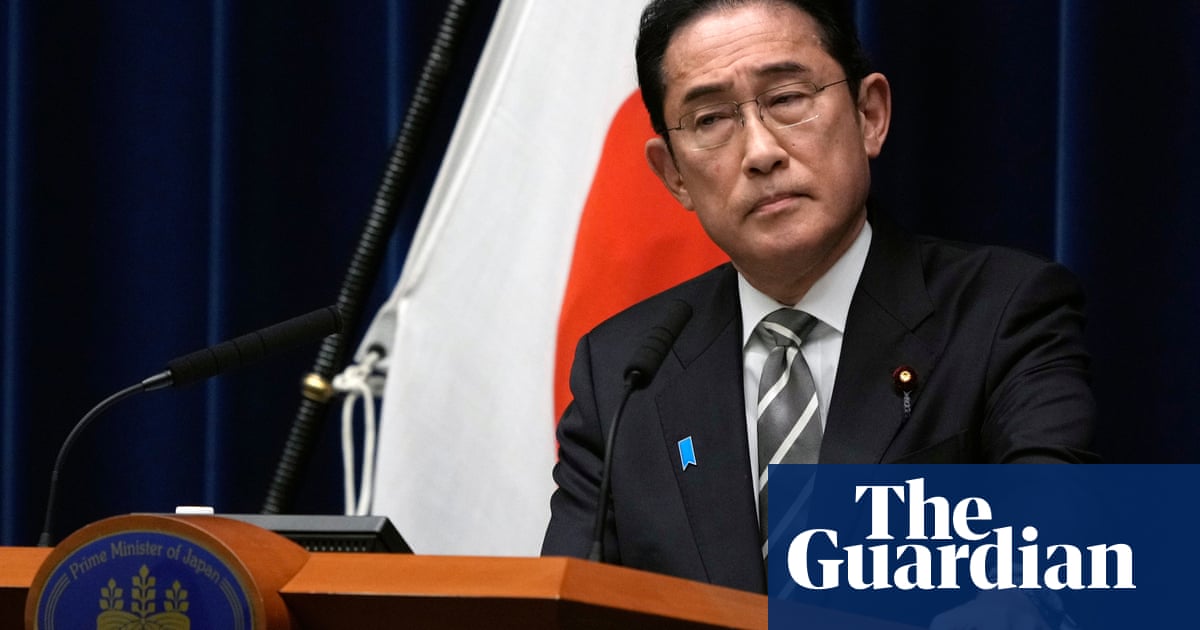
The Prime Minister of Japan, Fumio Kishida, is working to control the consequences of a political fundraising scandal. This scandal led to the resignations of four ministers, and there are reports that prosecutors may search the offices of many ruling party members.
The top official of the cabinet, Hirokazu Matsuno, has announced his resignation. Additionally, Yasutoshi Nishimura, the minister of economy and industry, Junji Suzuki, the minister of internal affairs, and Ichiro Miyashita, the minister of agriculture, have also stepped down.
The specific ministers being referred to are part of the Abe faction, which includes 100 members and was previously headed by the late Prime Minister Shinzo Abe. This faction is the largest within the ruling Liberal Democratic Party (LDP) led by Kishida.
Investigators are looking into claims that individuals in Abe’s group did not disclose the collection of approximately 500 million yen (2.7 million pounds) through fundraising events in the last five years.
Media reports indicate that investigators are examining whether Kishida’s faction has any involvement in the matter. The group is under suspicion for not reporting over ¥20 million in the period from 2017 to 2020, as reported by the Asahi Shimbun newspaper.
Japanese political parties regularly hold gatherings for their supporters to gather funds, which are then used for campaigning purposes.
Organizing events to collect donations is permitted by law. It has been reported that members of the Abe faction went beyond their ticket sales targets and kept the extra money. This act is not considered a crime. However, if they did not properly document these funds in official statements, it would be a violation of political funding regulations.
A former senior official who worked for an LDP lawmaker shared with broadcaster ANN that selling more tickets than required can result in increased income, if one is confident in their selling abilities. The official’s identity was concealed.
On Thursday, Matsuno, the chief government spokesman, announced to reporters that Michiko Ueno, a special advisor to Kishida, would be stepping down from her position, along with five deputy ministers.
Nishimura expressed concern that the public’s trust in the government was being harmed due to his supposed involvement in the funding scandal. He stated to reporters that he felt it was necessary to address the issue while the investigation is still ongoing.
This week, Kishida expressed his intention to confront the accusations directly as his government faced chaos. He stated, “I will work vigorously and guide the LDP towards regaining the people’s confidence.”
The accusations arise during a particularly inconvenient moment for Kishida, who recently stepped down from his role as leader of the LDP faction in an effort to distance himself from the escalating financial controversy.
His current approval ratings, which stand at a mere 23%, are the lowest they have been since he assumed office in late 2021. This drop in popularity can be attributed to public frustration with the escalating cost of living and the proposed tax increase to support unprecedented military expenditures.
According to a recent NHK survey, support for the LDP has dropped below 30% for the first time since 2012. This party has been in power for several decades with minimal interruptions, but it has experienced a decline in popularity.
Kishida announced his intention to implement “suitable measures” this week in order to restore faith in his administration. However, some experts are skeptical that a reshuffling of cabinet members will effectively address the scandal and its implications for his leadership.
Corey Wallace, an associate professor of political science and international relations at Kanagawa University, stated that Kishida’s best possible outcome currently is to stop the decrease in his personal approval. However, in order to improve it, more significant changes than just personnel adjustments will be necessary.
The upcoming lower house election is scheduled for October 2025 at the latest. However, due to the scandal, there is speculation that Kishida may face competition for the party’s leadership during the election for a new president in September of next year. This is assuming he remains in his position until then.
Source: theguardian.com
















